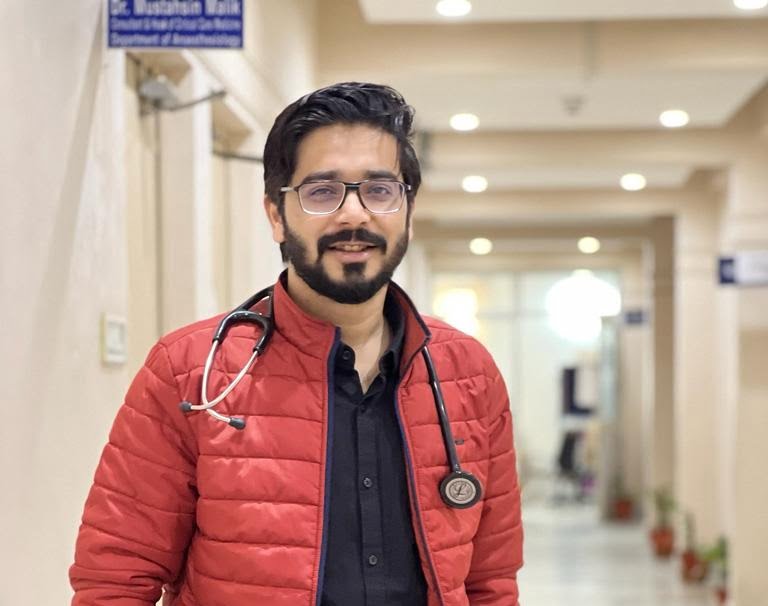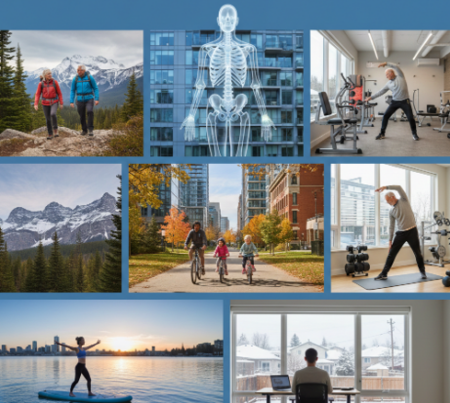In this interview, we speak with Dr. Mohd Salman, an experienced internist specializing in the management of chronic conditions such as diabetes and hypertension. Dr. Salman shares his insights on the common misconceptions surrounding these conditions, the most effective ways for patients to manage their health on a day-to-day basis, and the role of technology in chronic disease management.
He also discusses the key factors that contribute to a patient’s success in managing their chronic condition and offers advice for those struggling with the challenges of living with a chronic condition. Whether you are a patient or a caregiver, this interview is sure to provide valuable insights and tips for managing chronic conditions and improving overall health and well-being.
S. Elizabeth Thomas: Welcome to Diseasefix, Dr. Mohd Salman, or Dr. Sal as you are popularly known. It’s an honor to have you with us today. Could you please tell our readers a little about yourself and your background in medicine?
Dr. Mohd Salman: Thank you, Sarita, for having me. I am an Internal Medicine specialist. I completed my medical degree from AMU Aligarh, and then went on to specialize in Internal Medicine at a prestigious teaching hospital in Delhi. I have worked in several hospitals and clinics in India, and have also had the opportunity to work with international organizations on various health projects. I am currently associated with Hamdard University in New Delhi.
S. Elizabeth Thomas: That’s quite an impressive career path, Dr. Sal. As an Internal Medicine specialist, what motivated you to choose this branch of medicine?
Dr. Mohd Salman: Internal Medicine is a fascinating field, as it involves the diagnosis and treatment of a wide range of medical conditions that can affect different organ systems in the body. It requires a thorough understanding of the body’s functions and how they are affected by different illnesses and injuries. I have always been drawn to the challenge of trying to understand the underlying causes of different medical conditions and finding the most effective treatment for them.
S. Elizabeth Thomas: Could you tell us more about your current work and the services that you offer at your clinic?
Dr. Mohd Salman: Currently, I am associated with Hamdard University Medical Center, where I offer a range of services for the diagnosis and treatment of various medical conditions. Some of the services we offer include routine check-ups, management of chronic conditions such as diabetes and hypertension, and preventive health care. We also have a team of specialists who work with us to provide specialized care for specific medical conditions.
S. Elizabeth Thomas: That sounds like a comprehensive set of services. Could you share with us some of the common medical conditions that you see in your practice?
Dr. Mohd Salman: Some of the most common medical conditions that we see in our practice include hypertension, diabetes, heart disease, respiratory conditions such as asthma and COPD, and digestive disorders. We also see a lot of patients with mental health issues, such as depression and anxiety, which have become increasingly common in recent years.
S. Elizabeth Thomas: That’s a wide range of conditions, indeed. As an expert in the field, what advice would you have for people looking to maintain good health and prevent the onset of these conditions?
Dr. Mohd Salman: Prevention is always better than cure, and there are several simple things that people can do to maintain good health and prevent the onset of various medical conditions. Some of the most important things include maintaining a healthy diet and exercising regularly, avoiding tobacco and excessive alcohol consumption, getting regular check-ups and screenings, and managing stress effectively. It is also important to get vaccinated to protect against infectious diseases and to practice good hygiene to prevent the spread of infections.
S. Elizabeth Thomas: You specialize in managing chronic conditions such as diabetes and hypertension. What are some common misconceptions that patients have about these conditions and how do you address them?
Dr. Salman: One of the biggest misconceptions is that these conditions are not serious or that they can’t be effectively managed. Many people believe that once they develop diabetes or hypertension, they are stuck with it for life and there’s nothing they can do about it. However, this is not true. These conditions can be effectively managed through lifestyle changes such as diet and exercise, and often with the help of medication. It’s important for patients to understand that these conditions can be controlled and that they can still lead a normal, healthy life with proper management.
S. Elizabeth Thomas: What are some of the most effective ways that patients can manage their chronic conditions on a day-to-day basis?
Dr. Salman: One of the most effective ways is by following a healthy diet and engaging in regular physical activity. It’s also important to take medications as prescribed and to regularly monitor and manage blood sugar levels or blood pressure. Staying well-informed and educated about the condition is also key, as is working closely with a healthcare provider to develop a treatment plan that works best for the individual.
S. Elizabeth Thomas: In your experience, what are some common challenges that patients with chronic conditions face when it comes to managing their health?
Dr. Salman: One of the biggest challenges is often compliance with treatment plans. It can be difficult for some patients to stick to a strict diet or to remember to take their medications on schedule. Another challenge is the cost of treatment, as some medications and therapies can be expensive. Additionally, managing a chronic condition can be emotionally and mentally draining, and it’s important for patients to seek support from loved ones and possibly even a mental health professional if needed.
S. Elizabeth Thomas: Can you discuss the role of technology in chronic disease management?
Dr. Salman: Technology has played a huge role in chronic disease management in recent years. There are now wearable devices that can track physical activity and monitor vital signs, and there are also apps and online tools that can help patients track their diet and medication regimen. These tools can be incredibly helpful in helping patients to better manage their conditions and to stay on track with their treatment plans.
S. Elizabeth Thomas: That’s excellent advice, Dr. Sal. Now, moving on to the current pandemic, how has COVID-19 impacted your practice and the way you provide care to your patients?
Dr. Mohd Salman: COVID-19 has had a significant impact on the way we provide care to our patients. We have had to implement strict infection control measures to protect both our patients and our staff, including wearing personal protective equipment, frequently sanitizing surfaces, and maintaining social distancing. We have also had to adapt to virtual consultations and telemedicine, which have become increasingly important in the current scenario.
S. Elizabeth Thomas: Dr. Salman, thank you so much for taking the time to speak with us today. Your insights on chronic disease management have been invaluable. Is there anything else you’d like to add before we wrap up?
Dr. Salman: I just want to emphasize the importance of proactive management when it comes to chronic conditions. These conditions can be effectively managed and controlled, but it takes a proactive approach and a commitment to making lifestyle changes. It’s also important for patients to remember that they are not alone and to seek support from loved ones and healthcare professionals when needed.
S. Elizabeth Thomas: Thank you again for your time, Dr. Salman. It’s been a pleasure speaking with you today.
Dr. Salman: Thank you, Sarita. It was my pleasure as well.







